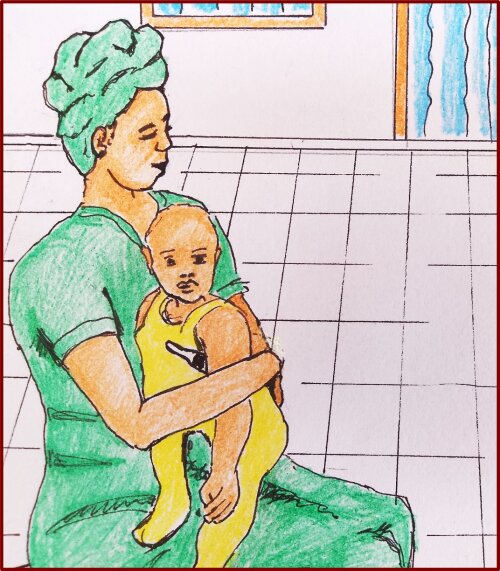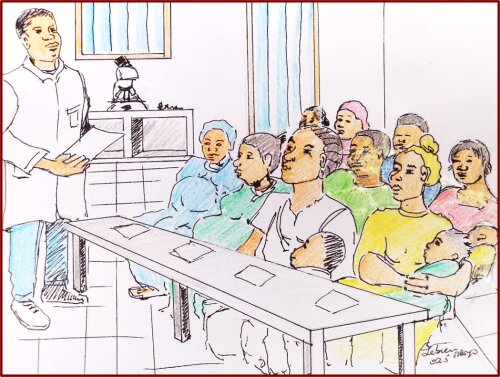
Pregnant participants as well as infants and children, continue to be underrepresented in research, especially in clinical trials and by result, also in mpox vaccine trials. This study wants to address this issue and wants to prioritize the health and safety of these high-risk groups.
The data show that mpox disproportionately affects vulnerable populations, including pregnant women and young children. They are often more vulnerable due to physiological and immunological factors.
Pregnant women experience altered immune responses. They face complications such as adverse foetal outcomes due to potential vertical transmission from mother to foetus, which may lead to congenital mpox. Moreover, the possibility of mother-to-infant transmission through breastfeeding remains uncertain. Ensuring that pregnant women receive the mpox vaccine can better protect both the mothers and their unborn children, reducing the risk of severe outcome.
Also infants, with their developing immune systems, are especially prone to severe disease. Due to their immature immune responses, they may react differently to vaccines compared to adults. Vaccinating young children is critical to preventing severe morbidity and mortality in this vulnerable group.
Protecting these groups not only reduces morbidity and mortality, but also promotes overall public health resilience. In other words: by ensuring the health of pregnant women and children, we enhance the well-being of entire families, fostering a more healthy and productive communities.
Vaccine hesitancy

Historically, communities may have uncertainty about vaccination, especially in vulnerable groups such as pregnant women and children who have previously been excluded from such research. Vaccine hesitancy is complex and specific to context. Clear communication and community engagement strategies throughout the course of the trial will be essential to overcome these barriers.
To ensure community engagement and contextual relevance, the study incorporates qualitative methods. Pre-trial workshops with key stakeholders will explain the trial, gather feedback on trial procedures, and identify context-specific barriers and facilitators. Insights will shape study materials, policies and recruitment strategies, while key messages will be shared through local medical and health authorities. After the trial, focus group discussions will explore strategies for effective dissemination of trial results and vaccine rollout.